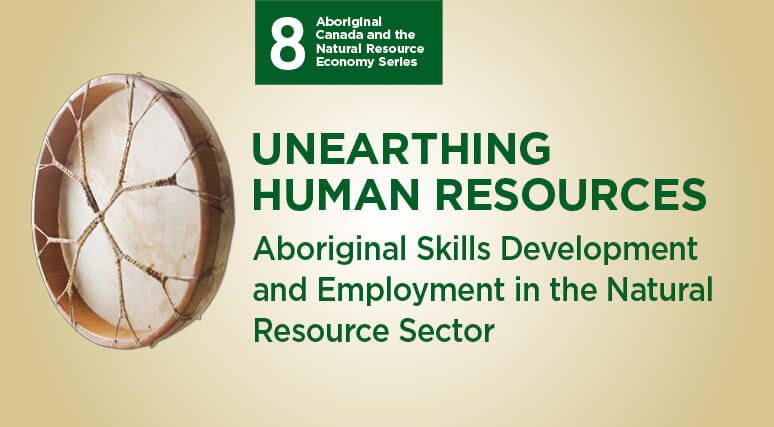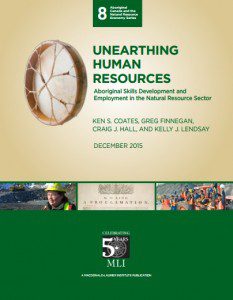
 MLI Senior Fellow lays out next steps for integrating Aboriginal Canadians into the natural resource sector workforce
MLI Senior Fellow lays out next steps for integrating Aboriginal Canadians into the natural resource sector workforce
OTTAWA, Dec. 10, 2015 – Natural resource companies have made great progress in employing thousands of Aboriginal Canadians across the country, Macdonald-Laurier Institute Senior Fellow Ken Coates finds in a new paper.
The change just isn’t happening as fast as is needed for First Nations workers.
“The simple reality is that for many Aboriginal communities, resource development is the only significant hope for Indigenous employment”, he writes.
Coates examines how best to integrate Aboriginal Canadians into the mining and oil and gas industries in “Unearthing Human Resources: Aboriginal Skills Development And Employment In The Natural Resource Sector”.
To read the full paper, click here.
Global downturn
Aboriginal Canadians found success – to a degree that would surprise many Canadians – in the natural resource sector for many years.
Companies reap the benefits from hiring First Nations employees, including workforce stability and insights into local weather and living conditions. It was also an opportunity for companies to provide benefits for Aboriginal communities that offer up land for development.
“The simple reality is that for many Aboriginal communities, resource development is the only significant hope for Indigenous employment”
But further improvement could be a major challenge with the the with the recent downturn in oil prices which has sent the sector into a tailspin.
 “For Aboriginal workers, communities and companies, the downturn happened after more than a decade of rapid expansion in employment and business collaboration, stalling one of the most extensive examples of Indigenous involvement in the Canadian market economy”, writes Coates.
“For Aboriginal workers, communities and companies, the downturn happened after more than a decade of rapid expansion in employment and business collaboration, stalling one of the most extensive examples of Indigenous involvement in the Canadian market economy”, writes Coates.
Now the question is: How can natural resource companies, and prospective Aboriginal employees, regain the momentum?
Barriers to Aboriginal employment
The slump in oil prices is just one barrier to Aboriginal Canadians finding more jobs in the natural resource sector.
Local Aboriginals frequently come to a job interview without the necessary skills. Resource companies, governments and post-secondary institutions have banded together to offer skill and training programs, but these have yet to coalesce into a strategy that yields even and predictable outcomes.
Lots of resource projects, in particular mining activities, are frequently short-term in nature, creating a mismatch with Aboriginal Canadians who prefer stable, well-paid employment.
And many Aboriginal Canadians, even after they are hired to work on natural resource projects, frequently hold low-skill positions – an issue that will only become more pronounced in the coming years as the resource sector switches to more automation.
Finding solutions
Resolving these issues will be important, says Coates: the Aboriginal labour force population is growing more than three times faster than other Canadians. By 2020, the population will be bigger than 1.1 million people.
Coates offers several recommendations, including:
- Give the communities time to respond to opportunities: Many companies now only launch training, skills development and employment efforts at the time a project begins in earnest. It needs to be done a decade in advance.
- Emphasize regional, rather than community, workforces: Natural resource projects go through many different phases, meaning no one community is assured of work in the sector. Areas like the Ring of Fire in northern Ontario should band together on workforce development.
- Collect better data: Too little is known about Aboriginals working in the natural resource sector.
- Improve career readiness: Finding workers who have the right attitudes for work is the most serious challenge facing Aboriginals seeking employment in the natural resources sector.
- Combine skills preparation initiatives: The preparation of Aboriginal people for work is too important to founder on conflict between Aboriginal communities, companies, governments and post-secondary institutions.
***
Ken Coates is a Senior Fellow with the Macdonald-Laurier Institute and Canada Research Chair in Regional Innovation in the Johnson-Shoyama Graduate School of Public Policy at the University of Saskatchewan.
The Macdonald-Laurier Institute is the only non-partisan, independent national public policy think tank in Ottawa focusing on the full range of issues that fall under the jurisdiction of the federal government. Join us in 2015 as we celebrate our 5th anniversary.
For more information, please contact Mark Brownlee, communications manager, at 613-482-8327 x105 or email at mark.brownlee@macdonaldlaurier.ca.




